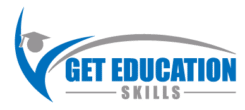A Comprehensive Guide to Key Aspects of Education
A Comprehensive Guide to Key Aspects of Education
Blog Article

Education is a cornerstone of personal and professional development, influencing nearly every aspect of our lives. This guide provides insights into key areas of education, from foundational skills and examination strategies to career planning and college preparation. Whether you’re a student, educator, or career aspirant, understanding these elements can significantly enhance your educational journey.
1. Understanding Education
Education is the systematic process of acquiring knowledge, skills, values, and attitudes. It spans various stages, from early childhood education to higher education and lifelong learning. Effective education helps individuals develop critical thinking, problem-solving abilities, and the skills needed to navigate an ever-changing world.
2. Essential Education Skills
To excel in education, certain skills are vital:
Critical Thinking: The ability to analyze and evaluate information to make reasoned decisions.
Communication: Articulating ideas clearly and effectively in both verbal and written forms.
Problem-Solving: Identifying and addressing challenges with innovative solutions.
Time Management: Organizing and prioritizing tasks to meet deadlines efficiently.
Digital Literacy: Using technology proficiently to enhance learning and productivity.
Developing these skills not only contributes to academic success but also prepares individuals for professional and personal challenges.
3. Navigating Examinations
Examinations are designed to assess a student’s knowledge and understanding of various subjects. Key types of exams include:
Standardized Tests: Assess performance against set benchmarks.
Quizzes and Midterms: Evaluate ongoing progress and understanding.
Final Exams: Comprehensive assessments covering course content.
Successful exam preparation involves creating a study plan, practicing past papers, and mastering test-taking strategies. Consistent study habits and stress management techniques can improve performance.
4. Planning Your Career
Career planning is crucial for long-term professional success. It involves:
Self-Assessment: Identifying personal interests, strengths, and values.
Research: Exploring career options and understanding job market trends.
Skill Development: Gaining relevant qualifications and experience.
Networking: Building connections with professionals in your field.
Career planning is a dynamic process that requires ongoing adjustment based on evolving interests and market conditions.
5. Exploring Careers Online
The digital age offers numerous resources for career development:
Job Portals: Websites for job searching and application.
Professional Networks: Platforms like LinkedIn for networking and career growth.
Online Courses: Opportunities for acquiring new skills and certifications.
Leveraging these online tools can provide valuable insights and enhance career prospects.
6. Preparing for College
College represents a significant step in higher education, offering specialized knowledge and opportunities for personal growth. Key considerations include:
Researching Colleges: Investigating institutions based on programs, location, and campus culture.
Application Process: Preparing and submitting applications, including essays and recommendations.
Financial Planning: Exploring tuition costs and financial aid options.
Choosing the right college and preparing thoroughly can greatly impact your educational and career trajectory.
7. Supporting Educators
Teachers play a crucial role in the education system. Effective teaching involves:
Lesson Planning: Creating engaging and educational lesson plans.
Classroom Management: Maintaining a positive and productive learning environment.
Student Assessment: Evaluating and providing feedback on student performance.
Providing educators with resources and support is essential for fostering an effective geteducationskills learning environment.
8. Embracing General Education
General education encompasses a broad range of subjects and skills, providing a well-rounded knowledge base. It includes:
Literacy and Numeracy: Fundamental skills in reading, writing, and mathematics.
Social Studies: Knowledge of history, geography, and civic responsibilities.
Science and Technology: Understanding scientific principles and technological advancements.
A broad educational foundation prepares individuals for various aspects of life and work.
Conclusion
Education is a multifaceted journey that extends beyond formal schooling. By focusing on essential skills, effective exam strategies, career planning, and utilizing digital resources, individuals can enhance their educational experiences and future success. For further information and resources on these topics, explore Get Education Skills.